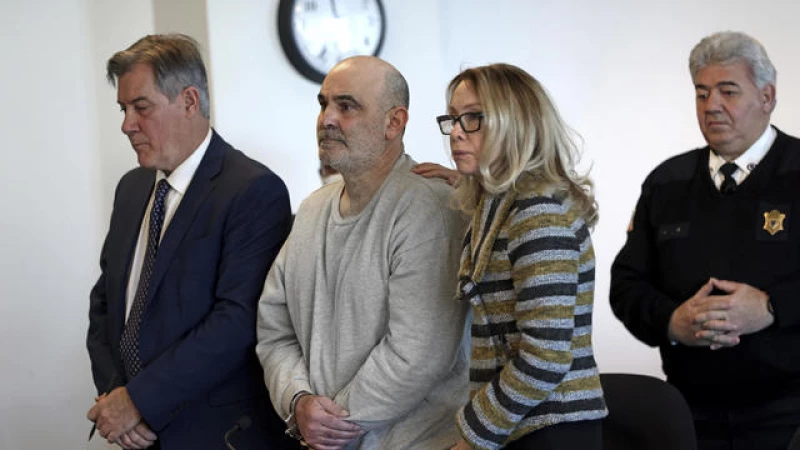Racist Road Rage Murderer Sentenced to Life in Prison
A man from Massachusetts has been sentenced to life in prison for the racially motivated murder of a Black man during a road rage incident in 2021. Dean Kapsalis, a resident of Hudson, was found guilty by a jury last May on charges of murder in the second degree, violation of constitutional rights, and other offenses.
The incident occurred on January 19, 2021, when Kapsalis and the victim, Henry Tapia, got into an argument. Witnesses reported that as the argument was coming to an end, Kapsalis shouted a racial slur and then deliberately struck Tapia with his pickup truck before driving away. Tapia was taken to a hospital but unfortunately succumbed to his injuries.
Middlesex District Attorney Marian Ryan emphasized the racial motivation behind the crime, stating, "We should make no mistake - this was a racially motivated, senseless tragedy. What is significant about today's verdict is that in Middlesex County when we have violent incidents of hate and bigotry, those will not be seen as just background facts."
The sentencing was handed down on Wednesday, with Kapsalis receiving life in prison. However, there is a possibility of parole after 15 years.
Sources: CBS Boston
"Unacceptable Racial Insult" Leads to Severe Sentence for Perpetrator
In a recent case, the use of a horrific racial insult during a crime has resulted in a sentence that is being deemed proportional to the offense. The incident involved Henry Tapia, who tragically lost his life due to the racial intimidation and threats he faced.
Judge David A. Deakin, who presided over the case, acknowledged the support that the defendant, identified as Kapsalis, received from friends and family. However, he also noted that Kapsalis had a long history of violent tendencies, which influenced the sentencing decision.
During the court proceedings, Judge Deakin addressed Tapia's grieving relatives, acknowledging that no sentence could ever bring him back. He expressed his desire to do so if it were possible.
Kapsalis, who claimed that Tapia's death was accidental, had tried unsuccessfully to have his conviction reduced to manslaughter. This delayed his sentencing.







